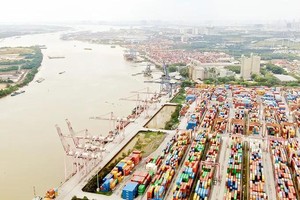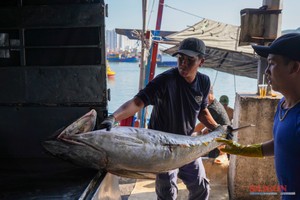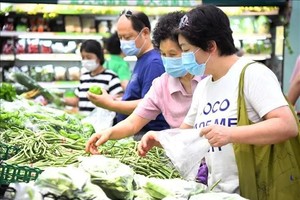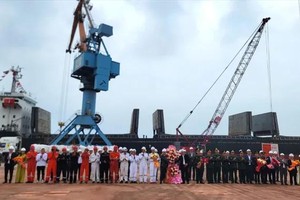This rally reflects investors’ growing optimism that substantial foreign capital will soon pour into the market following the reclassification.
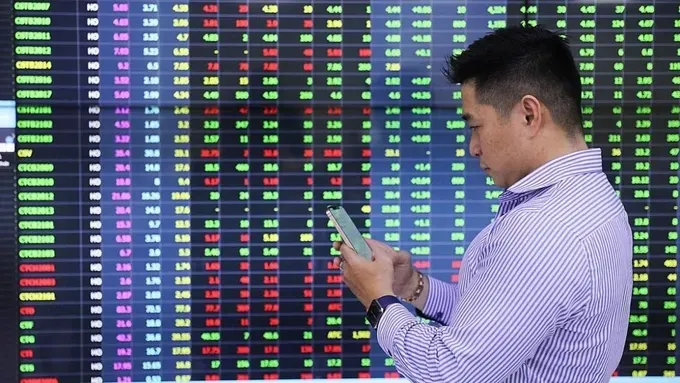
Expectations of a capital inflow reversal
Vietnam’s stock market has demonstrated remarkable growth, with the VN-Index rising more than 30 percent since the start of the year. According to Director Le Thanh Hung of UOBAM Fund Management Company, several key factors have driven this momentum including accommodative monetary policy, strong corporate earnings in the second quarter of 2025, and anticipation surrounding Vietnam’s upgrade from a frontier to a secondary emerging market by FTSE Russell.
Despite this positive backdrop, the market has recently faced pressure from sustained foreign net outflows. As of the end of September 2025, foreign investors had recorded a net sell value exceeding VND100 trillion surpassing last year’s total of VND94.45 trillion. Foreign ownership on the Ho Chi Minh City Stock Exchange (HOSE) has fallen to its lowest level in nearly 13 years, at only 15.61 percent, equivalent to around US$46 billion of the bourse’s total capitalization of $278.4 billion.
This persistent withdrawal has dampened investor sentiment and significantly reduced market liquidity, which dropped from an average of VND55.6 trillion per session in August 2025 to VND39.7 trillion in September. Early October trading sessions have seen even lower turnover, ranging between VND23-25 trillion per session.
Director Le Thanh Hung explained that the yield gap between the US dollar and Vietnamese dong, coupled with strong investment waves in U.S. technology stocks and the recent sharp rise in Vietnam’s equities, has prompted foreign investors to take profits and withdraw.
However, analysts at MBS Securities believe that if FTSE Russell confirms the market upgrade, it will mark a major turning point. The move is expected to ease liquidity bottlenecks, reverse the outflow trend, and attract robust foreign inflows paving the way for a more sustainable upward market cycle.
Sharing the same outlook, representatives from Vietcap Securities expressed confidence that the upgrade would serve as a powerful catalyst, potentially bringing in $6 billion–$8 billion or even up to $10 billion in net foreign investment. “These estimates account for both active and passive capital, with active funds contributing the majority,” said Anthony Le, Deputy Director of Institutional Client Trading at Vietcap Securities.
Meanwhile, HSBC Global forecasts that Vietnam’s inclusion in the FTSE Russell emerging market category could attract as much as $10.5 billion in foreign capital, roughly equivalent to a 1.5 percent weighting which is comparable to Indonesia’s share in the index.
Vietnam affirms its concerted efforts to fulfill the upgrading criteria set by FTSE Russell
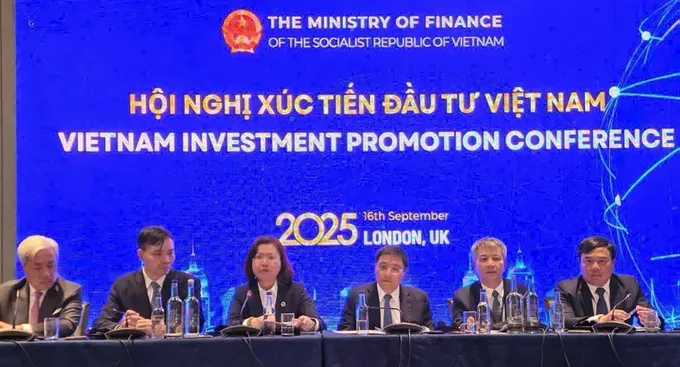
During a meeting with the London Stock Exchange (LSE) held in London on September 15, Minister of Finance Nguyen Van Thang formally affirmed Vietnam's concerted efforts to fulfill the upgrading criteria set by FTSE Russell. The Vietnam Stock Market Upgrade Project, officially approved by the Vietnamese Government in September 2025, has established the specific objective of elevating the national stock market status from a frontier market to a secondary emerging market within the FTSE Russell classification system by 2025.
In response to this initiative, Director of Dragon Capital Dang Thanh Tung provided the following commendation: "We formally recognize and commend the long-term strategic vision and unwavering resolve demonstrated by the Government through the ratification of the stock market upgrade project. This constitutes a pivotal and strategic maneuver, unequivocally showcasing a commitment to establishing a Vietnamese financial market that is sustainable, robust, and increasingly appealing to the international investment community."
Furthermore, Vice Chairman Nguyen Viet Cuong of the Board of Directors of KAFI Securities offered a forward-looking assessment, stating that following the anticipated upgrade by FTSE Russell, the subsequent imperative for the stock market is to strive for classification elevation by MSCI. He underscored that the MSCI criteria necessitate a higher degree of accessibility for foreign investors, specifically citing requirements related to foreign room limitations, the flexibility of the foreign exchange market, and the assurance of investor equality. Consequently, enhancing the operational flexibility of foreign capital flows is deemed the critical determinant for making the prospective MSCI upgrade a feasible objective in the near term.
According to Deputy Chairman of the State Securities Commission Bui Hoang Hai, the standardization of the market is essential for protecting investors. Upgrading the stock market is not the ultimate goal but rather a milestone in the long journey towards building an effective and sustainable securities market.
The larger objective is to enhance the ability to mobilize and allocate capital for the economy, while also facilitating easier access for international investors to the Vietnamese stock market. Current reforms are aimed at standardizing market operations in accordance with international practices, particularly regarding transparency, investor protection, and higher market governance standards. Among these, the central clearing and settlement system that is about to be implemented will help reduce transaction risks and increase the confidence of foreign investors.


